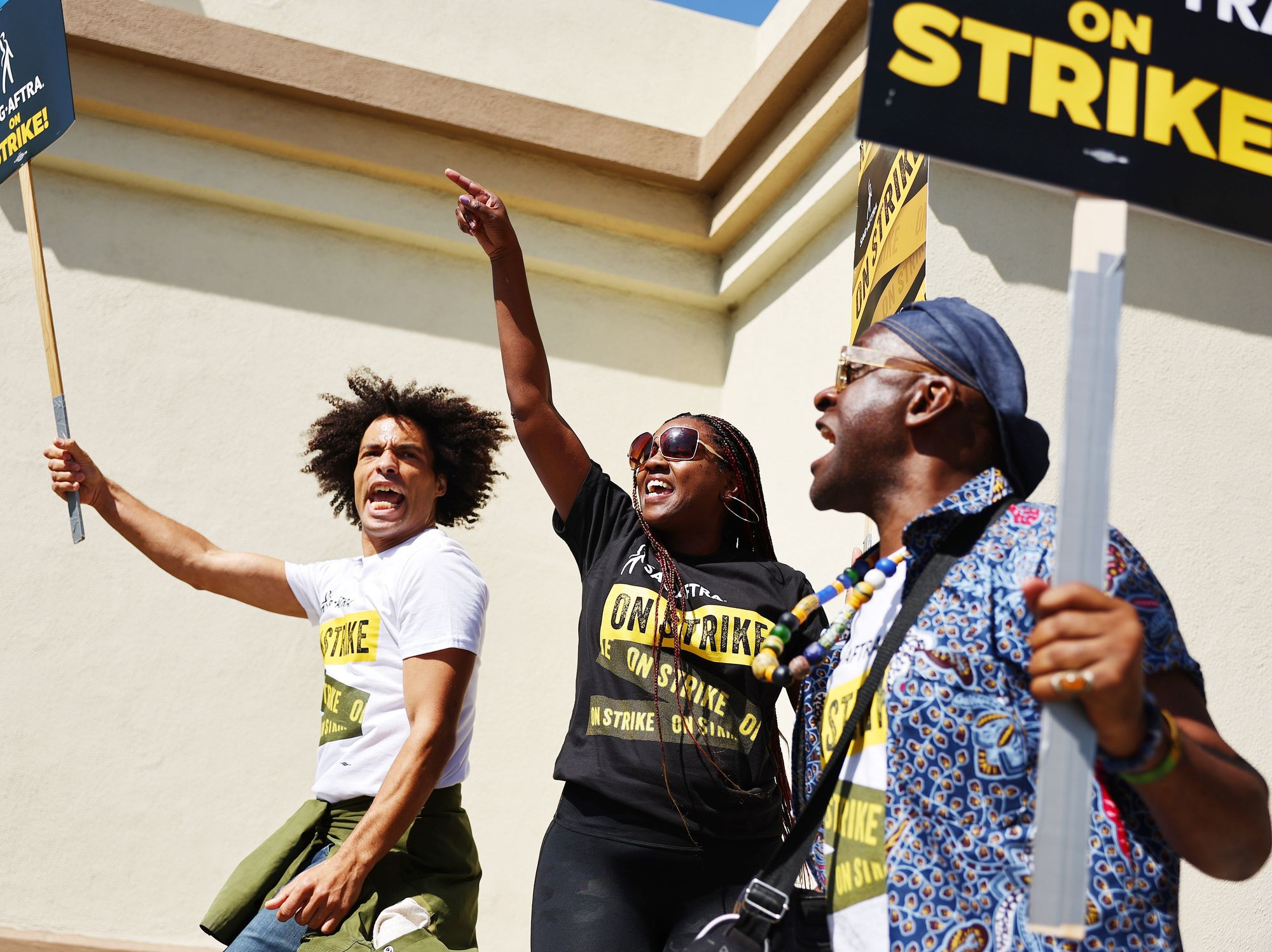the future of flimmaking
Writers strike win leaves plenty to talk about, says Austin Film Fest director

The WGA strike is over, but the SAG-AFTRA strike and negotiations rage on.
The Writers Guild of America (WGA) strike is officially over, but there's still more work to be done to make sure writers, producers, and actors are on the same page with the rest of the entertainment industry. After a five-month strike by WGA members, a new three-year contract was approved between the union and major Hollywood studios on October 9.
The 30th annual Austin Film Festival (AFF) and Writers Conference this October are two of the area's biggest cultural events that bring together local filmmakers, writers, producers, and actors alike. Although productions happening in Austin lately have likely been by independent studios — exempting them from strike orders — there was still much uncertainty leading up to the strike ratification on May 2, according to Austin Film Festival director Barbara Morgan.
"Almost everybody coming here [to the festival and conference] is a writer, so for us, we had a lot of people locked and confirmed who were coming to talk," Morgan says. "And no matter what, [the conference] was always going to be a great place for people to come and have a conversation about what [the strike] means for the future."
AFF is no stranger to the topic of union strikes, Morgan shares, as the last WGA strike in 2007-2008 happened a week after the festival ended. She recalled the growing solidarity and camaraderie between writers at the conference, who were preparing for their final attempts to come to an agreement with the Alliance of Motion Picture and Television Producers (AMPTP) before the strike.
"There was a lot of conversation here about [the strike], and a lot of people who really didn't know each other from the Writers Guild who were all of a sudden on panels with each other. [The conference] really became this place where people were having the conversations here before going back [to Los Angeles or New York to] argue for [a better contract]," Morgan adds.
Morgan predicts this year's writers conference might have a similar underlying focus on the state of the entertainment industry.
"I think there's going to be a lot of freewheeling conversation about what [the WGA] won and maybe even what they lost or didn't get, and how things are going to move forward," she says.
Even with the recent approval of a new three-year labor contract between WGA members and the AMPTP, not everything has been resolved. The Screen Actors Guild-American Federation of Television and Radio Artists (SAG-AFTRA) strike is still ongoing, with the most recent negotiations breaking down again as of October 12.
Former Austinite Alex Johnson, a writer and WGA East member, shared his thoughts about the ongoing strike in an email to CultureMap. He was a strike captain during the recent WGA strike, and is currently picketing alongside SAG-AFTRA members in New York.
"Unfortunately, it looks like the AMPTP is pulling the same trick on SAG-AFTRA that they pulled on the WGA in August — leaking their latest offer and then shutting down talks in an attempt to create dissent among the members of SAG-AFTRA," he wrote. "It didn’t work when they pulled that on the WGA and it won’t work on SAG-AFTRA. All the studios did by doing this is delay when work can start and double down on hurting the film industry and its employees."
The financial and emotional toll on striking writers, filmmakers, and actors has been difficult, Johnson says, but he perseveres for his fellow union members so all of their voices are heard at the negotiation table.
"We’re fighting to guarantee that writing and acting are viable careers — if they’re not something that folks can do and earn a livable wage, then the industry will collapse," he wrote. "Actors and writers have essentially been fighting to protect the industry from itself."
Johnson maintains that even with the new WGA agreement, the entertainment industry will not resume normalcy until SAG-AFTRA also has a fair contract.
"SAG-AFTRA were there for the WGA on day one of our strike, and they never faltered," he says. "They had our back and now we have theirs. Some of us might be writing, but we’re all still finding time to march with our sibling union until their deal comes through. Solidarity means solidarity."
